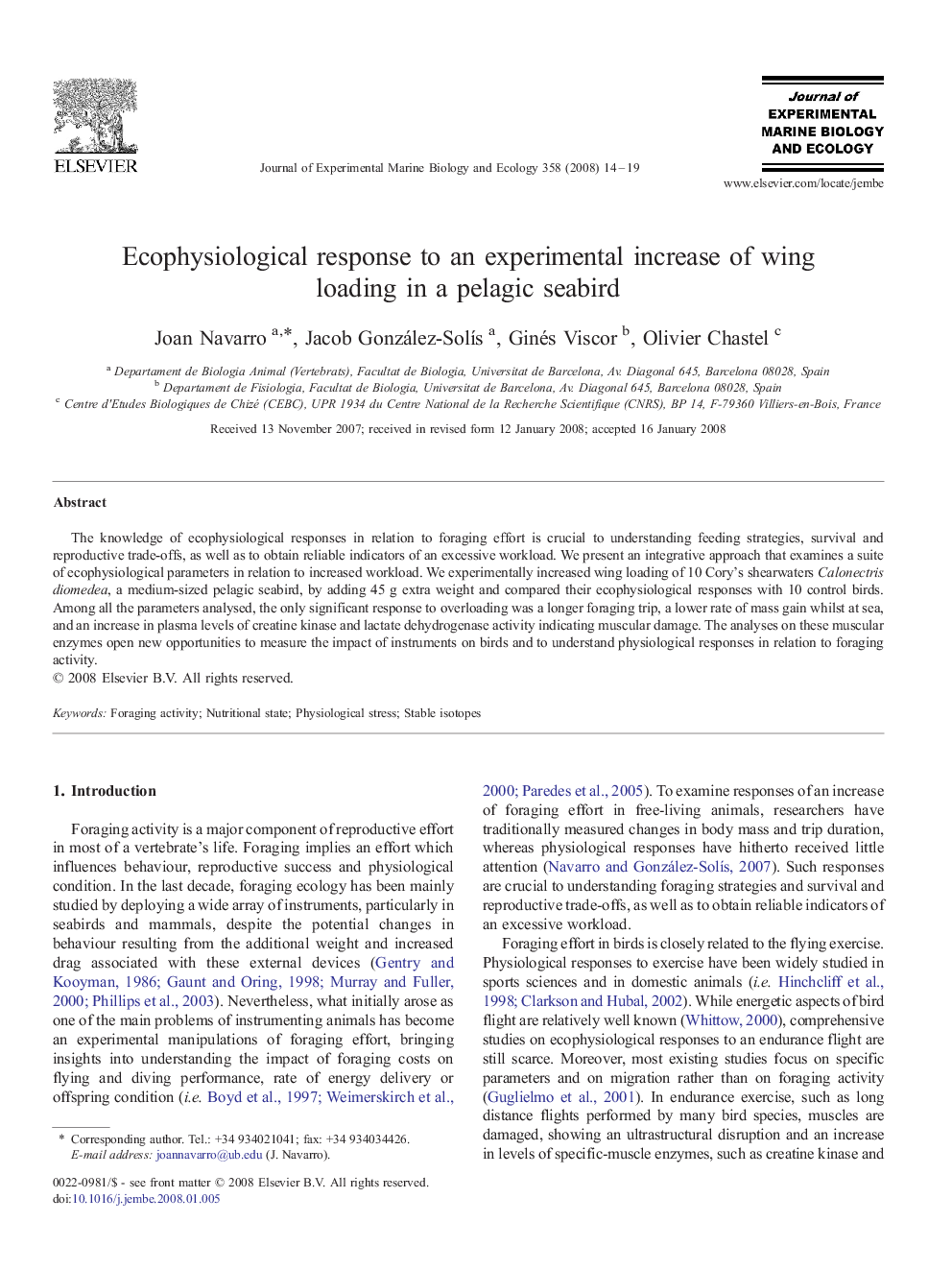| Article ID | Journal | Published Year | Pages | File Type |
|---|---|---|---|---|
| 4397431 | Journal of Experimental Marine Biology and Ecology | 2008 | 6 Pages |
The knowledge of ecophysiological responses in relation to foraging effort is crucial to understanding feeding strategies, survival and reproductive trade-offs, as well as to obtain reliable indicators of an excessive workload. We present an integrative approach that examines a suite of ecophysiological parameters in relation to increased workload. We experimentally increased wing loading of 10 Cory's shearwaters Calonectris diomedea, a medium-sized pelagic seabird, by adding 45 g extra weight and compared their ecophysiological responses with 10 control birds. Among all the parameters analysed, the only significant response to overloading was a longer foraging trip, a lower rate of mass gain whilst at sea, and an increase in plasma levels of creatine kinase and lactate dehydrogenase activity indicating muscular damage. The analyses on these muscular enzymes open new opportunities to measure the impact of instruments on birds and to understand physiological responses in relation to foraging activity.
